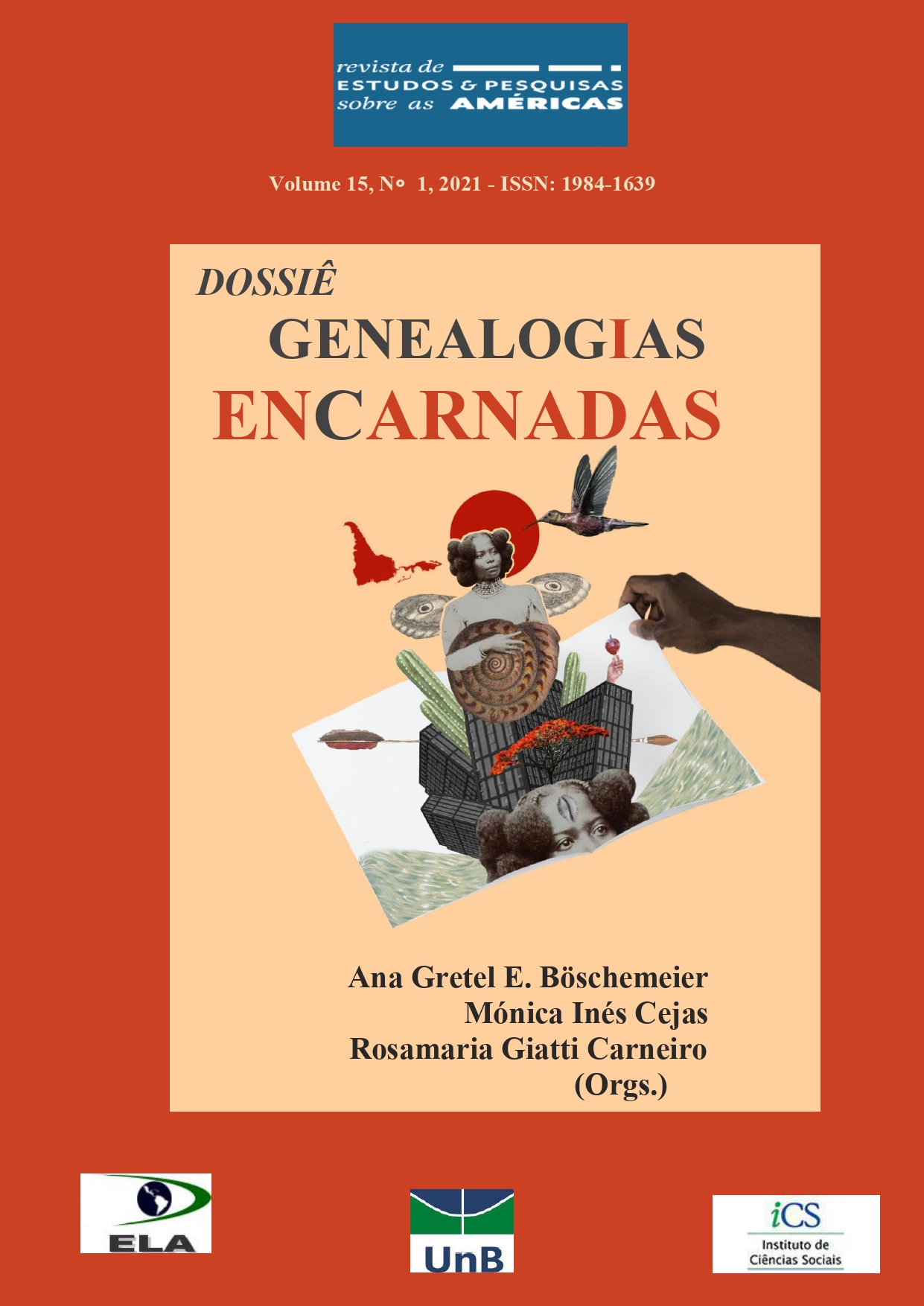Dialogue embodied from/about Our America
Interview with Breny Mendoza and Karina Ochoa
DOI:
https://doi.org/10.21057/10.21057/repamv15n1.2021.40449Keywords:
feminists; Nuestra América, life stories; embodiment; intelectual pathsAbstract
This interview aims to bring into play what feminist women from Nuestra América understand as/by a genealogy incarnated of themselves based on their own life stories; from but also beyond feminism and existing as women. For this, we organized it as a duet, bringing into dialogue two feminists from different generations and places of speech: Breny Mendonza, from Honduras and the United States, and Karina Ochoa, from Mexico. They are academic feminists, with particular research perspectives and life experiences. Our aim was, therefore, to sew the dialogue from their existence, involvement with feminisms, specific bodily and emotional passages from their lives and readings about the Latin and Central American feminist movements, dealing “to trace the production what is happening” from our guts.
Downloads
Downloads
Published
How to Cite
Issue
Section
License
Copyright (c) 2021 Paulo Roberto

This work is licensed under a Creative Commons Attribution-NonCommercial 4.0 International License.
The published material is the property of the Journal, and may be reproduced in whole or in part with indication of the source.
Copyright: Authors will be responsible for obtaining the copyright of the material used. Authors who publish in this journal agree to the following terms:
a)Authors retain the copyright and grant the journal the right of first publication, with the work simultaneously licensed under
the Creative Commons Attribution License which allows the sharing of work with acknowledgment of authorship and initial publication in this journal.
b) Authors are authorized to take additional contracts separately, for non-exclusive distribution of the version of the work published in this journal (eg, publish in institutional repository or as a book chapter), with acknowledgment of authorship and initial publication in this journal.
c) Authors are allowed and encouraged to publish and distribute their work online (eg in institutional repositories or on their personal page) at any point before or during the editorial process, as this can generate productive changes as well as increase the impact and the citation of the published work (See The Effect of Free Access).
















